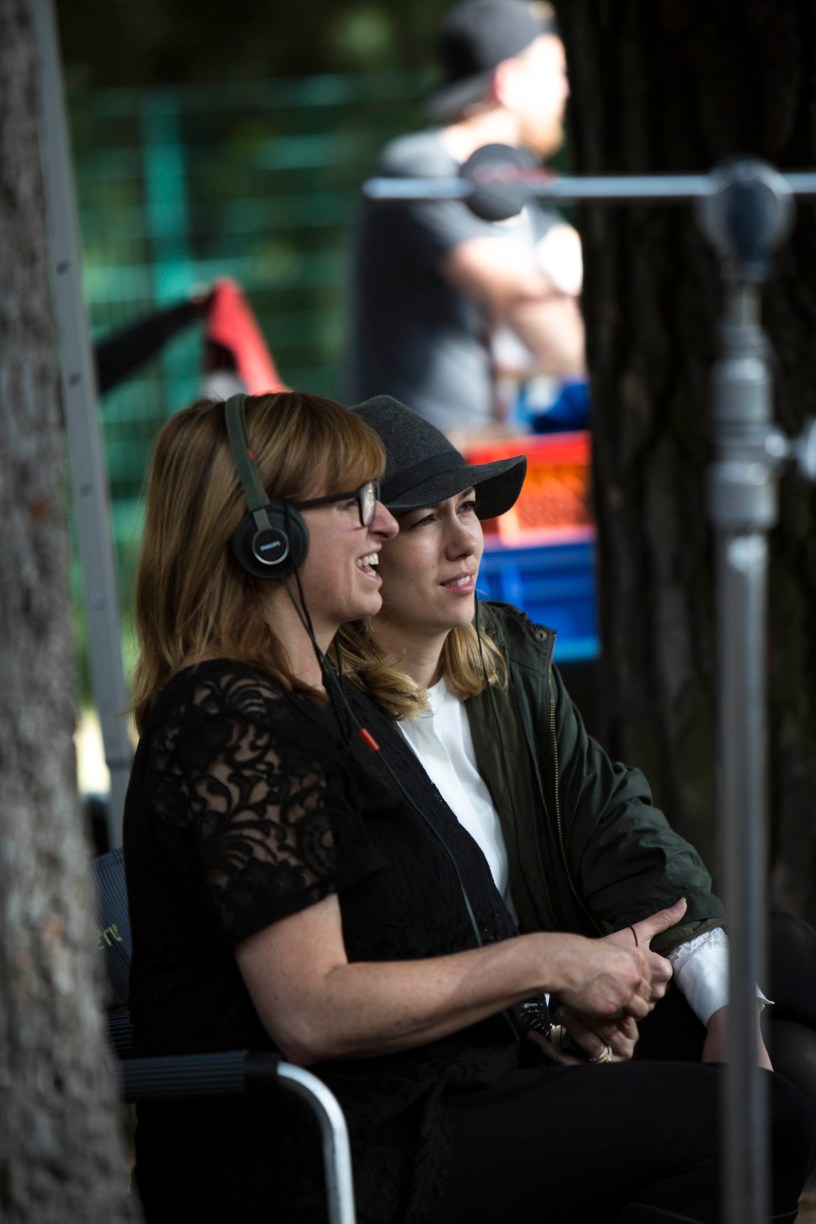Cate Shortland on the set of 'Berlin Syndrome'.
Australian filmmaker Cate Shortland has only made three features: 2004’s Somersault, 2012’s Lore and now Berlin Syndrome, with the last two both set in Germany.
“Like a lot of people I’m just drawn to the vibrancy of the culture,” says the filmmaker, “and I love living in Berlin.”
Shortland’s partner is Australian filmmaker Tony Krawitz (Dead Europe), whose family is German Jew.
“His grandmother is still alive, she’s 102, and she’s from Berlin,” Shortland tells IF. “We’ve lived in Berlin on and off for the last six years, our kids went to school there for a while. My German’s still really atrocious but I love living there.”
Now the director has shot a feature in the city – adapted by Snowtown’s Shaun Grant from a novel by Melanie Joosten.
Aquarius Films producer Polly Staniford was responsible for optioning the book and bringing both Grant and Shortland on board.
Shortland was attracted to the relationship between the two lead characters, played in the film by Australian actress Teresa Palmer (Hacksaw Ridge) and German Max Riemelt (Sense8) – “how the space defined them and how it kind of mirrors a totalitarian state in a way.”
“I just loved the complexities of the material and how you couldn’t really pin it down,” Shortland says. “I was interested in the sexual side and all the power stuff.”
Developing the script took around four years, with the director particularly interested in developing the male character of Andy.
“He became a much bigger character,” says Shortland. “We ended up fleshing out his life and his relationship with his father, and his life outside of the apartment at the school.”
International sales agent Memento Films International, with whom Shortland had worked on Lore, came on board early, with eOne ANZ taking domestic rights.
When it came time for casting, Memento suggested German star Riemelt, and Shortland was fascinated by the young actor.
“He’s just such an interesting person because he looks so innocent but he’s had a really big life; he’s travelled a lot, he had children really young, his mother is from the GDR so he really understood the complexities of all the politics. And he’s a Berliner, so he has a Berlin accent, and German people can hear that accent.”
For the female lead, Shortland auditioned half a dozen actresses, with Palmer snagging the role due to her “amazing mix of being both girl and woman.”
“She’s got this innocence to her but she’s also a kind of warrior as well. And she wanted to do something really raw and not just based around how she looks. She’s ready to do more character-based stuff.”
Shortland shot the film in the affluent Berlin suburb of Prenzlauer Berg, where the director lived for the duration of the shoot, in an apartment opposite the one in which she was shooting.
“I’d walk about ten metres every day to work, which was pretty awesome. The German crew was brilliant, and there’s a story in every building [and] you can just really feel it on screen.”
Interiors were shot in Melbourne, with production designer Melinda Doring recreating the Berlin apartment at Docklands.
Shortland credits DP Germain McMicking with “creating stories within the frame when there’s no dialogue.”
“His documentary background just gives him so much freedom when he’s on set, because he’s really fluid and reactive instead of set in his ways, so he’s a really exciting collaborator.”
Berlin Syndrome premiered at the Sundance Film Festival in January, with Netflix scooping international rights prior to the premiere, which will go down in Sundance infamy.
“First of all a man announced during a very early sex scene that if we were in car park D we had to move our car,” recalls Shortland.
“And [then] all the sound left the auditorium, and then the film just stopped about 15 minutes before the end and we just sat there waiting for them to get it working again. But they couldn’t, and so Teresa, Max and I just said, let’s go straight down and start the Q&A now.”
“Max and Teresa kind of acted out the ending in a really funny way. And you know what, in terms of stuff happening, because it was Trump’s inauguration day, it just seemed like a tiny blip. What had happened in the morning was so much more horrendous.”


